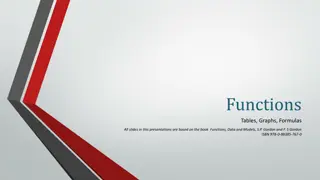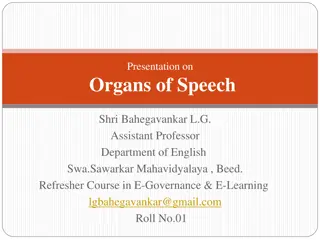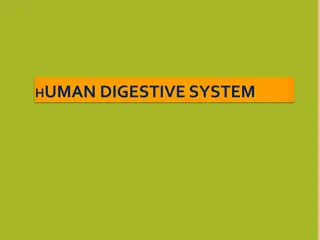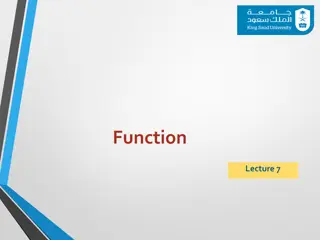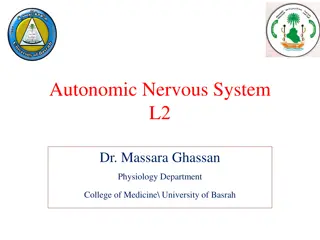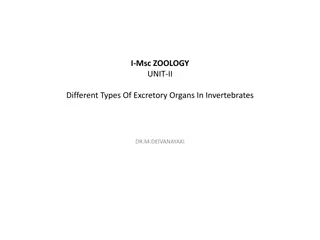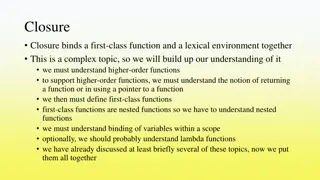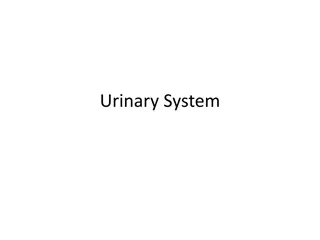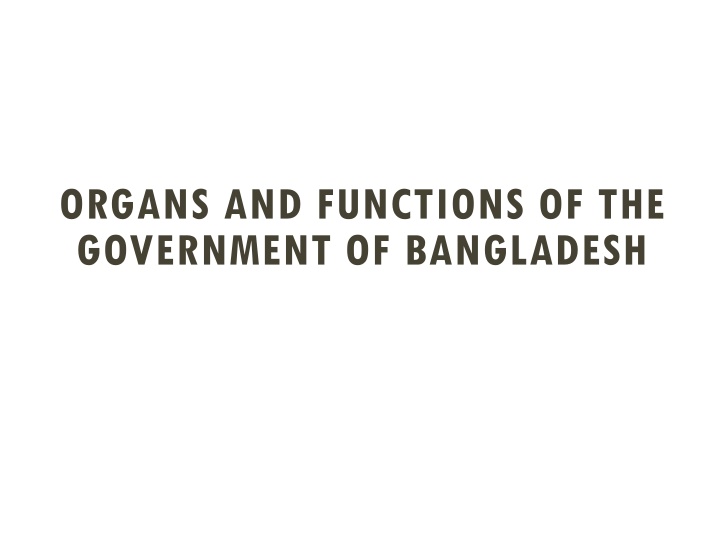
Overview of the Government Structure in Bangladesh
Explore the organs and functions of the government of Bangladesh, including the legislative branch, executive power, and judicial system. Learn about the qualifications and disqualifications for parliament election, along with the key roles of the legislature in lawmaking, budget control, and executive oversight. Understand the democratic principles and separation of powers in Bangladesh's government.
Download Presentation

Please find below an Image/Link to download the presentation.
The content on the website is provided AS IS for your information and personal use only. It may not be sold, licensed, or shared on other websites without obtaining consent from the author. If you encounter any issues during the download, it is possible that the publisher has removed the file from their server.
You are allowed to download the files provided on this website for personal or commercial use, subject to the condition that they are used lawfully. All files are the property of their respective owners.
The content on the website is provided AS IS for your information and personal use only. It may not be sold, licensed, or shared on other websites without obtaining consent from the author.
E N D
Presentation Transcript
ORGANS AND FUNCTIONS OF THE GOVERNMENT OF BANGLADESH
GOVERNMENT: CONCEPT The word government is derived from the Latin infinitive qubernare , meaning "to govern" or "to manage". Government is the mechanism for determining the policy of the state as well as the means by which state policy is enforced. In parliamentary systems, the government is composed of the prime minister and the cabinet. In other cases, "government" refers to executive, legislative, judicial, bureaucratic, and possibly also devolved powers.
ORGANS OF THE GOVERNMENT OF BANGLADESH The People s Republic of Bangladesh is a unitary, independent and sovereign republic which has a parliamentary form of government. The President is a constitutional figure head and is elected by the members of the Parliament for the tenure of 5 years. The supreme command of the armed forces vests with the President. The system of Government is democratic with separation of powers among the three organs, namely- (A) the legislature; (B) the executive; and (C) the judiciary.
A. LEGISLATURE OF BANGLADESH In Bangladesh, the legislative branch of the government is a unicameral Parliament - Jatiyo Sangsad, which makes the laws for the citizens. The president calls Parliament into session. Jatiyo Sangsad consists of 350 members of which 300 Members from 300 territorial constituencies elected on the basis of adult Franchise. The remaining 50 seats are reserved for women. A quorum is sixty members.
LEGISLATURE OF BANGLADESH (CONT.) Qualifications for parliament election: Article 66 (1) i. If he is a citizen of Bangladesh ii. Attained the age of twenty-five years Disqualifications for parliament election: Article 66 (2) I. Who is declared by a competent court to be of unsound mind and is an undercharged insolvent II. Acquires the citizenship of, or affirms of acknowledges allegiance to, a foreign state III. Who has been, on conviction for a criminal offence involving moral turpitude, sentenced to imprisonment for a term of not less than two years unless a period of five years has elapsed since his release; IV. holds any office of profit in this service of the Republic other than an office which is declared by law not to disqualify its holders.
FUNCTIONS OF LEGISLATURE OF BANGLADESH 1. Law Making: The Members of the Legislature can by a majority vote accept or reject any Bill. 2. Control over the budget: right to impose a cut on any demand on the budget 3. Control over Executive: The Parliament has the right to put Questions and Supplementary Questions to the Cabinet. 4. Judicial: Parliament can remove the President by a process of impeachment 5. Electoral: parliament takes part in the election of the President 6. Amendment of the constitution: the parliament can amend certain clauses of the constitution with a two thirds majority 7. Mirror of public opinion: criticizes and compels the executive to act according to the wishes of the people
LIMITATIONS OF THE PARLIAMENTARY SYSTEM IN BD 1. Lack of proper practice of democracy 2. Avoiding attitude of parliamentary session 3. Improper role of speaker and deputy speaker 4. Ineffective or tadbir culture 5. Patronizing political mudslinging 6. Ineffective role of election commission 7. Ineffective role civil society 8. Lack of proper infrastructure of ICT 9. Poor responsibilities of the citizens 10. The role of military person or administration 11. Lack of stability of the parliament
B. EXECUTIVE ORGAN OF BANGLADESH The executive power of the Republic is exercised by or on the advice of the Prime Minister, who commends the support of the majority members of parliament. The Cabinet, headed by the Prime Minister and consisting of other ministers is the executive arm of the government. Ministers, State Ministers and Deputy Ministers are appointed as per wish of the Prime Minister. The Cabinet is collectively responsible to the parliament. Each ministry is headed by a Minister or a state Minister. Below the ministries lie several executive agencies in order to executive government policies and decisions. Territorially, the country is divided into administrative layers like Divisions, Districts, Upazilas etc.
FUNCTIONS OF EXECUTIVE ORGAN OF BANGLADESH 1. Administrative: Ministers are responsible for the maintenance of law and order and for the running of the administration. 2. Legislative: The executive prepares bills for this purpose and introduces them in the legislature. 3. Military Functions: The President has the power to promote, demote and dismiss high military officers. He can declare emergency for the defense of the country 4. Foreign Relations: The President appoints diplomatic representatives in other countries and receives those of foreign countries. 5. Financial Functions: Though the legislature controls the national finance, yet the executive prepares the budget and tries to get it passed by the legislature.
LIMITATIONS OF THE EXECUTIVE ORGAN IN BD 1. Lack of proper cooperation and coordination 2. Apathy to change the bureaucratic manners 3. Improper ICT facilities 4. Lack of skilled and sound manpower 5. Politicization of government functions 6. Lack of proactive leadership quality 7. Practice of traditional rules and regulations 8. Lack of proper practice of constitution 9. Poor qualifications of the members of the cabinet 10. Highly centralized government system 11. Ineffective local government system
C. JUDICIARY ORGAN OF BANGLADESH At the apex of the country's judiciary system stands the Supreme Court. The Supreme Court serves as the Guardian of the Constitution and enforces the fundamental rights of the citizens. It consists of the High Court Division and the Appellate Division. The Appellate Division of the Supreme Court in Dhaka reviews appeals of judgment by the High Court Division. The judges of both divisions are appointed by the President. At the grass-roots level, the judicial system begins with village courts. Unresolved disputes then go to the sub district level. Cases may wind their way up from district courts to permanent benches of the High Court Division.
FUNCTIONS OF JUDICIAL ORGAN OF BANGLADESH 1) Interpretation of the laws 2) Guardian of the constitution 3) Decide the cases 4) Custodian of fundamental rights 5) Protection of civil rights 6) Advisory functions
HOW TO MAKE JUDICIARY MORE EFFECTIVE IN BANGLADESH? 1) Complete freedom from the executive organ 2) Ensuring the quality of the judges 3) Introducing ICT facilities 4) Strong Political commitment toward nation 5) Proactive and impartial role of Attorney General Office 6) Conducting various research works 7) Organizing various training programs 8) Positive role of mass media, civil society and mass people
CHAPTER RELATED QUESTIONS Define government and Parliament. Write down the qualifications to be the Member of Parliament. Discuss the functions of the House of the People or Parliament . How can we make an effective parliamentary system in Bangladesh? Discuss the limitations of the parliamentary system of Bangladesh. What is Executive Organ? Discuss the functions of it. Narrate the key problems of executive Organ of Bangladesh. What is independence of Judiciary? Discuss the functions of the judiciary organ of Bangladesh. How can independence of Judiciary ensure in Bangladesh?








